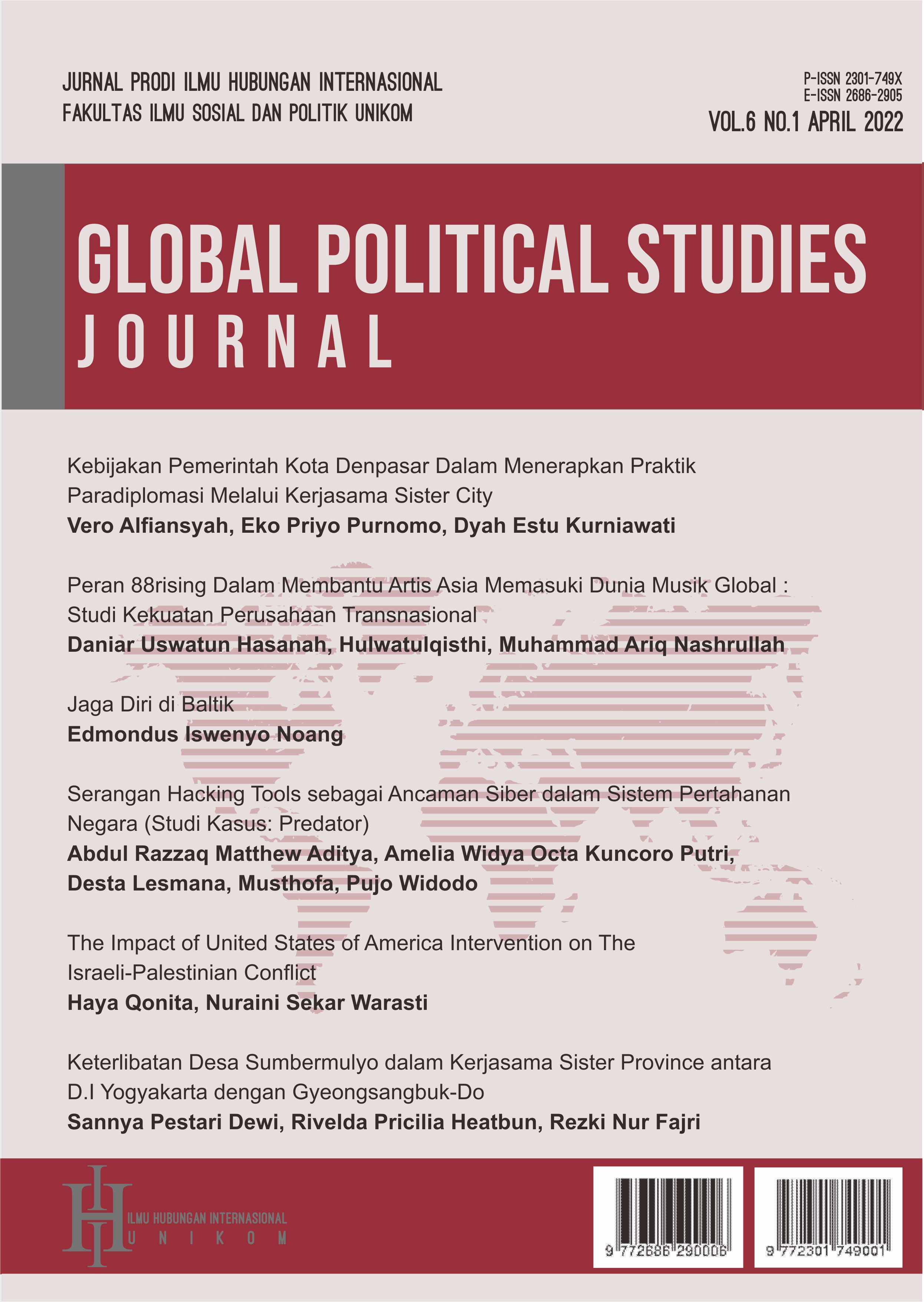Kebijakan Pemerintah Kota Denpasar Dalam Menerapkan Praktik Paradiplomasi Melalui Kerja Sama Sister City
DOI:
https://doi.org/10.34010/gpsjournal.v6i1.6431Abstract
This article aims to explore the Sister City collaboration as a paradox for establishing international relations in the city of Denpasar. Sister City cooperation is taken from an interdisciplinary perspective in the study of regional cooperation law and international relations. This article tries to answer how the city of Denpasar conducts paradiplomacy through Sister City to promote international cooperation. Implementation of three levels of paradiplomacy consisting of economic issues (level 1), culture, education, technology and other multidimensional aspects (level 2) and political considerations (level 3). The legal corridors of regional cooperation for para-diplomatic enforcement are explored using data collected through legal instruments and international relations. Para-diplomatics means that local governments evaluate the legal framework and constraints needed to interact with international actors. This article uses a qualitative empirical approach to link the two disciplines. The article shows that Denpasar Sister City cooperation can be associated with para-diplomatic practices only at the first level (economic) and second level (culture, education and technology). The Denpasar government faces several challenges in implementing the Sister City initiative, including legal barriers, continuity of cooperation, limited human resources, redistribution of funds and limited citizen participation. The COVID-19 pandemic has also affected the implementation of the planned Sister City collaboration.









